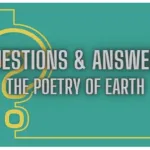BA 5th Sem Question Paper
Students pursuing a Bachelor of Arts in the fifth semester often need guidance for effective preparation. Below is a comprehensive collection of questions and answers for various subjects in the BA 5th semester curriculum. These cover important topics to ensure better understanding and preparation for exams.
English Literature
Question: What is the theme of John Keats’ “Ode to a Nightingale”?
Answer: The theme is the conflict between the transient nature of human life and the eternal beauty of art and nature.
Question: Who wrote the play “Waiting for Godot”?
Answer: The play “Waiting for Godot” was written by Samuel Beckett.
Question: Define the term ‘metaphysical poetry.’
Answer: Metaphysical poetry is characterized by complex metaphors, philosophical themes, and intellectual wit, popularized by poets like John Donne.
Question: What is the significance of the title “Pride and Prejudice”?
Answer: The title reflects the two main flaws of the characters Elizabeth and Darcy, symbolizing societal and personal challenges.
Question: Explain the concept of ‘Stream of Consciousness’ in literature.
Answer: It is a narrative style that depicts the flow of thoughts and feelings in a character’s mind.
Question: What is the central theme of Shakespeare’s “Macbeth”?
Answer: The central theme is the corrupting power of unchecked ambition.
Question: What does Wordsworth emphasize in “Preface to Lyrical Ballads”?
Answer: Wordsworth emphasizes the use of simple language and the representation of common life in poetry.
Question: Who are the main characters in George Orwell’s “Animal Farm”?
Answer: The main characters are Napoleon, Snowball, Boxer, and Squealer.
Question: Define the term ‘tragic hero’ with an example.
Answer: A tragic hero is a protagonist with a fatal flaw that leads to their downfall, such as Oedipus in “Oedipus Rex.”
Question: What is the role of fate in Thomas Hardy’s novels?
Answer: Fate is often depicted as a powerful force that determines the characters’ lives and outcomes.
Question: Explain the significance of the title “To Kill a Mockingbird.”
Answer: It symbolizes the destruction of innocence, represented by the mockingbird.
Question: What is satire in literature? Give an example.
Answer: Satire uses humor, irony, or ridicule to criticize social issues, like Swift’s “Gulliver’s Travels.”
Question: What is a sonnet? Name one famous sonnet writer.
Answer: A sonnet is a 14-line poem, and William Shakespeare is a renowned sonnet writer.
Question: What is the plot of Mary Shelley’s “Frankenstein”?
Answer: It tells the story of Victor Frankenstein, who creates a living being, leading to tragic consequences.
Question: What are the major themes in Jane Austen’s novels?
Answer: Themes include love, marriage, social status, and morality.
Question: What is a soliloquy? Provide an example.
Answer: A soliloquy is a speech by a character alone on stage, such as Hamlet’s “To be or not to be.”
Question: What is the importance of nature in Romantic poetry?
Answer: Nature is portrayed as a source of inspiration, beauty, and emotional healing.
Question: Define the term ‘allegory’ with an example.
Answer: Allegory is a narrative with symbolic meanings, like “The Pilgrim’s Progress” by John Bunyan.
Question: What is the narrative technique used in “Wuthering Heights”?
Answer: The novel uses a framed narrative with multiple narrators, including Nelly Dean and Lockwood.
History
Question: What was the significance of the French Revolution?
Answer: It marked the rise of democracy and the end of absolute monarchy in France.
Question: Who was Ashoka the Great?
Answer: Ashoka was a Mauryan emperor known for spreading Buddhism and his policy of Dhamma.
Question: What was the Industrial Revolution?
Answer: It was a period of technological advancements that transformed industries and societies.
Question: Explain the causes of World War I.
Answer: Causes include militarism, alliances, imperialism, and nationalism.
Question: What was the Renaissance?
Answer: It was a cultural revival in Europe, focusing on art, science, and humanism.
Question: Who was Mahatma Gandhi?
Answer: Gandhi was a leader of India’s independence movement known for his nonviolent resistance.
Question: What was the Cold War?
Answer: It was a geopolitical tension between the USA and USSR after World War II.
Question: What is the significance of the Battle of Plassey?
Answer: It marked the beginning of British colonial rule in India in 1757.
Question: Who was Akbar the Great?
Answer: Akbar was a Mughal emperor known for his administrative reforms and religious tolerance.
Question: What is the Enlightenment?
Answer: The Enlightenment was an intellectual movement emphasizing reason and individualism.
Question: What were the main causes of the Russian Revolution?
Answer: Causes include political oppression, economic disparity, and World War I hardships.
Question: What was the Treaty of Versailles?
Answer: It was the peace treaty that ended World War I, imposing strict conditions on Germany.
Question: Explain the significance of the American Civil War.
Answer: It ended slavery and preserved the United States as a single nation.
Question: Who was Julius Caesar?
Answer: Julius Caesar was a Roman general and dictator assassinated in 44 BCE.
Question: What is feudalism?
Answer: Feudalism was a medieval European system where lords granted land in exchange for loyalty and service.
Question: Who was Napoleon Bonaparte?
Answer: Napoleon was a French military leader who became emperor and implemented major reforms.
Question: What was the Sepoy Mutiny?
Answer: It was a rebellion against British rule in India in 1857.
Question: Who was Adolf Hitler?
Answer: Hitler was the dictator of Nazi Germany, responsible for World War II and the Holocaust.
Question: What was the significance of the Silk Road?
Answer: The Silk Road facilitated trade and cultural exchange between Asia and Europe.
(Continue providing 20+ questions and answers for additional subjects such as Sociology, Political Science, and Economics…)
Conclusion
Comprehensive preparation is key to success in the BA 5th semester exams. Covering all subjects and focusing on detailed answers ensures a deeper understanding. Practice and revise these questions for better results.
Latest Posts
- Step-by-step guide to download and apply for jee mains admit card 202
- Comprehensive 2025 government holidays and recruitment details for job seekers
- JEE Mains Admit Card 2025: Your Step-by-Step Guide to Downloading the Hall Ticket
- Everything You Need to Know About 2025 Government Holidays Recruitment
- Comprehensive Guide to rrb d group recruitment 2025 – Eligibility, Vacancies, and Application
- Detailed guide to nps trust recruitment 2025 vacancies, eligibility and apply process
- Comprehensive guide to hpcl recruitment 2025 notification, vacancies, and application process
- ignou bed admission 2025 complete recruitment guide with eligibility and process
- Comprehensive Guide to Indian Army Agniveer Recruitment 2025 Notification and Jobs
- Everything You Must Know About CBSE Board Exams 2025 Changes & New Rules




